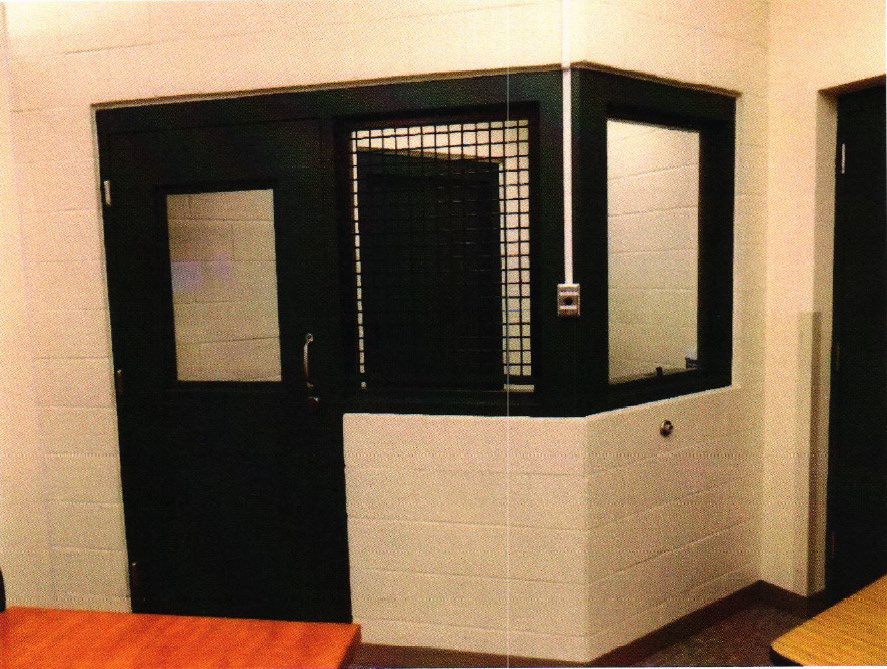WA Supreme Court: Forcing defendants to appear for hearings from in-court holding cells is unconstitutional
June 26, 2024 – In a unanimous decision, the Washington State Supreme Court ruled in the Luthi case that the Cowlitz County Superior Court’s practice of confining defendants to an ‘in-court holding cell’, without any sort of individualized inquiry, is unconstitutional.
The Luthi case centers around Cowlitz County Superior Court where it is common practice to use a courtroom in the Cowlitz County Jail for short criminal proceedings. Within this courtroom is a small in-court holding cell where defendants such as Cassandra Luthi are kept during such proceedings. The cell is about 5 feet wide, five feet deep and eight feet long, with a mesh window that allowed defendants to speak with their attorneys. A jail guard would be inside the holding cell with the defendant.

Cowlitz County Superior Court often utilizes a courtroom within the Cowlitz County Jail for short criminal proceedings where no jury or witnesses are present. They required criminal defendants to appear for their hearings within this holding cell. The WA Supreme Court has ruled this as unconstitutional because it undermines the presumption of innocence.
In 2021, Luthi pleaded guilty to delivery of heroin within a school zone and was given 36 months of community custody as a mental health sentencing alternative (MHSA). She was taken into custody at Cowlitz County Jail on December 20, 2022 where she was held without bail until her MHSA revocation in February 2023, which took place in the jail’s courtroom. Her defense attorney, who was familiar with the in-court holding cell, filed a motion for Luthi “to appear in court without restraints.” This was not ruled upon before her hearing, so Luthi again objected to the use of the cell, which was orally denied by the judge who opined that the cell was not “at the same level as shackling” and did not “really see any prejudice to Ms. Luthi.”
The Washington State Supreme Court disagreed, reversing and remanding for a new MHSA revocation hearing. “The in-court holding cell undermines the presumption of innocence, interferes with a defendant’s ability to communicate with counsel, and violates the dignity of the defendant and the judicial proceedings,” Justice Mary Yu wrote in the opinion.
For more information about this case, please read “Defendants can’t be forced to appear in court from jail cells, WA Supreme Court rules” by David Gutman of The Seattle Times.



